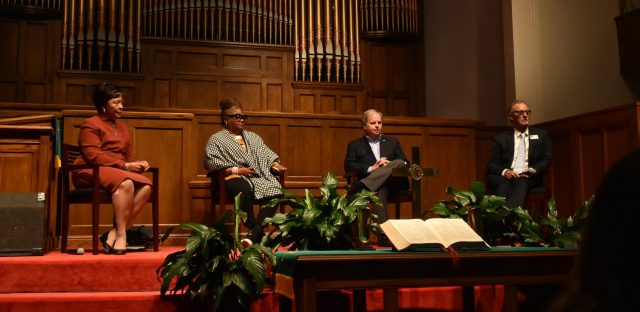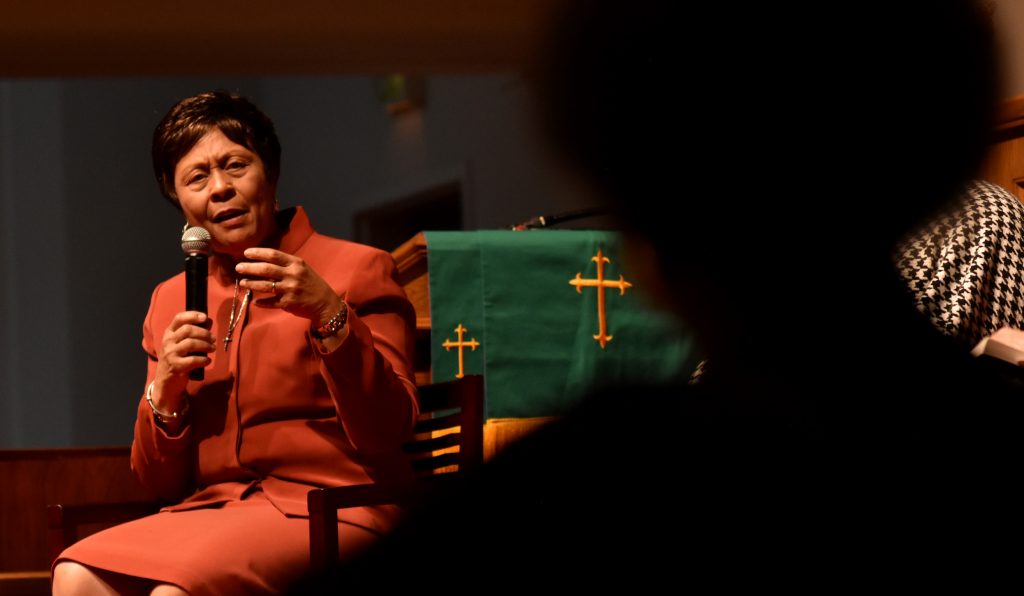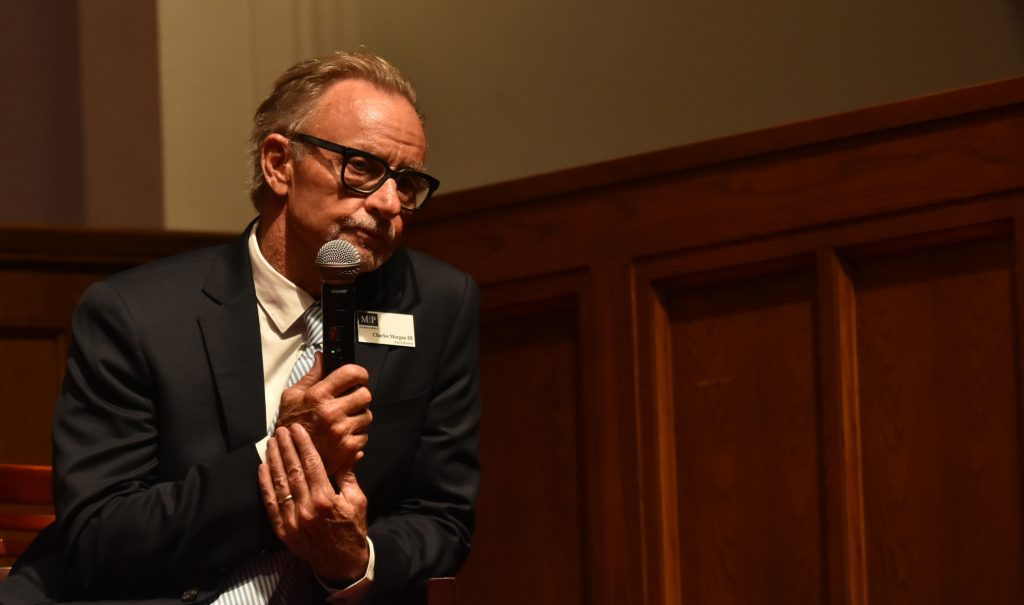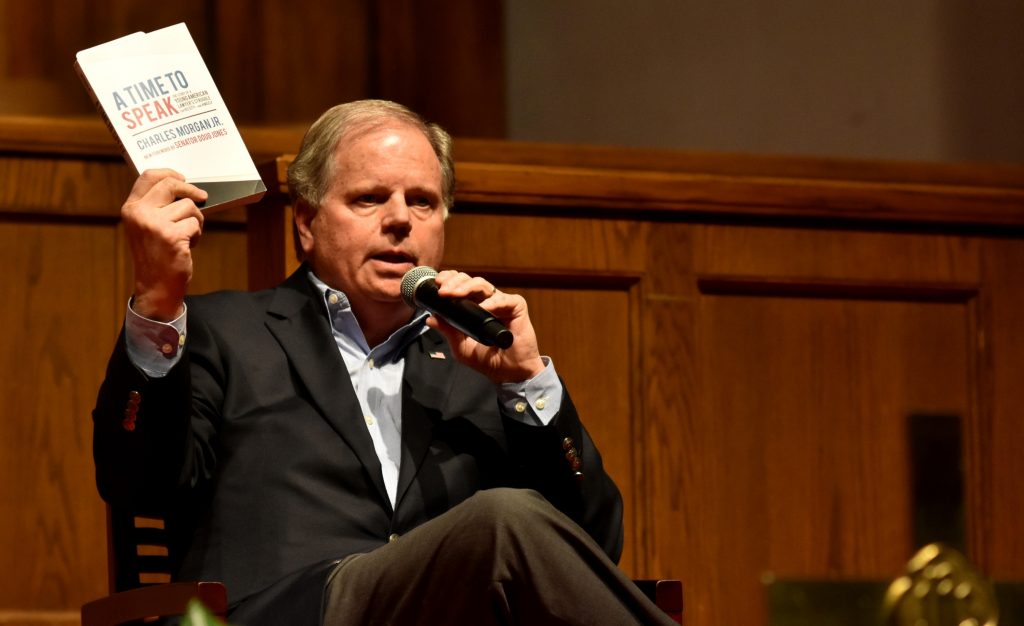
By Solomon Crenshaw Jr.
The Birmingham Times
Former U.S. Senator Doug Jones summed up it best when he told a gathering Wednesday at the Sixteenth Street Baptist Church that the world needs more people like Charles Morgan Jr. to take a stand.
Morgan was the legendary white civil rights attorney known for making an impassioned speech on Sept. 16, 1963, the day after the Sixteenth Street Church bombing that killed four young girls.
“Right now, we are under threats in many, many different ways in this country,” said Jones, during a panel discussion hosted by The Morgan Project, a Birmingham-based social justice initiative. “The threat to democracy, I think, is real. The assault on our voting rights, the assault on people and minorities is real. We’ve got to have people to sound the alarm that our divisions are killing us.
“We’ve got to try to figure out how to come together and to do that, we’ve got to have more Chuck Morgans,” he continued. “We’ve got to have more Chuck Morgans standing up.”
Morgan delivered a speech in 1963 that has become part of Birmingham’s history.
“Four little girls were killed in Birmingham yesterday,” he said during a speech to the YMBC, founded as the Young Men’s Business Club, but now includes all members. “A mad, remorseful worried community asks, ‘Who did it? Who threw that bomb? Was it a Negro or a white?’ The answer should be, ‘We all did it.’ Every last one of us is condemned for that crime and the bombing before it and a decade ago. We all did it.”
On Wednesday, several hundred people filled the pews of the historic church for a panel discussion on race relations and the recent re-publication of Morgan’s 1964 book “A Time to Speak.”
The Morgan Project focuses on addressing the systemic problems that Black Americans deal with, including economic opportunity, access to healthcare and myriad other issues.
Jones said people need to display the courage needed to stand up and be counted when they hear things that are wrong and divisive.
“That is the courage that I think is lacking in so many public officials,” the former U.S. attorney said. “I think it’s lacking in so many people across this country, whether you’re white, Black, it doesn’t matter. It is a responsibility of all of us.”
Jones cited the forward he wrote in the re-released Morgan book in saying, “There’s just never a time not to speak.”
Jones, who prosecuted two of the people who bombed the church, was joined on the panel by Dr. Carolyn McKinstry, a survivor of the bombing; Lisa McNair, sister of Denise McNair, one of the four children killed in the bombing; and Charles Morgan III, the author’s son.
The younger Morgan said his father spent a career in courtrooms fighting for civil rights.
“This city has great promise. When you look at what life was like in 1963 for Black people in Birmingham, when it was a segregated world to today, we’ve made lots of strides, but not nearly enough,” Morgan III said. “We’ve got a long way to go and I’m here to do anything I can to help with that.”
McKinstry said Birmingham’s civil rights history is known all over the country and the world and the city is seen as a beacon and a center for change, she said.
“Their question most often is, how did you rise above?” McKinstry asked. “How did the people come together to work together again? How did we rise above the terrible tragedy that happened here? We haven’t completely risen above it, but I think we’ve come a very long way.”
McNair, daughter of Chris and Maxine McNair, who passed last month, was the lone panelist who was born after the church bombing. She said every generation has a responsibility to hold on to the things that have been gained and to teach the generations that follow how to hold on to those gains.
“We still have more work to do,” she said. “But we would not have traveled as far as we have without the help, the assistance of our white sisters and brothers.”
McNair recalled decades ago telling an aunt there were no good white people in Birmingham.
“She looked at me and said, ‘If there were none, you would not be here today,’” the panelist said. “She said, ‘you give thanks for the people that are here and those that support. It doesn’t matter what color you are.’
“Our survival, not only of ourselves but our democracy, will depend on how well we handle this crisis we have right now,” she said.
For more on the Morgan Project visit https://www.morganproject.org/.









